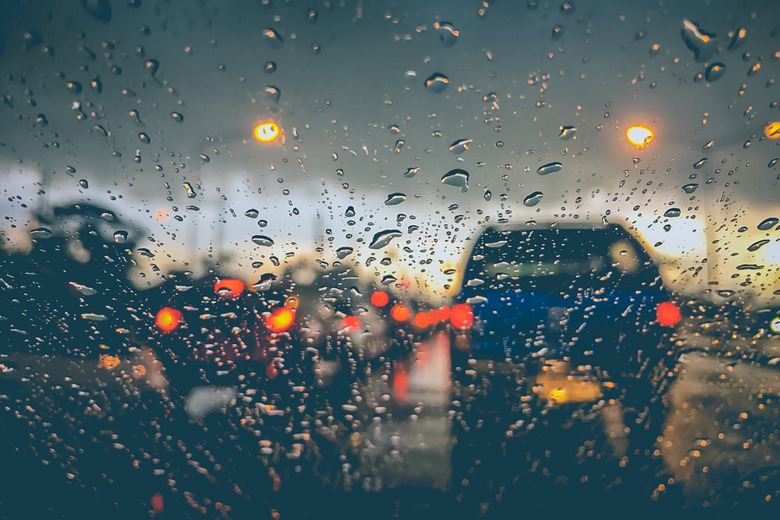Negative Effects Of Rainy Weather
A good rainstorm nourishes plants, replenishes local water supplies and provides the perfect backdrop for curling up with your favorite book. Of course, as with anything else, too much rain can lead to a host of problems, many of which can linger long after the storm ends. In addition to the obvious impact on mood and outdoor activities, excess rain brings negative effects for wildlife, the environment and even the economy.
Floods
Floods
Rain can transform a small stream into a raging sea of water in minutes, leading to dangerous flash floods. A period of rainy weather could cause rivers or lakes to overflow their banks, spilling water across the ground and damaging homes, cars and businesses. In the United States, which maintains some of the most advanced flood warning and communication systems in the world, floods kill 140 people and cause $6 billion in damage each year. In lesser developed countries, the affects of flooding may be much worse.
Dangerous Roads
Dangerous Roads
Nearly a quarter of all car accidents occur during bad weather, and most take place when the road is simply wet, not snow-covered or icy. Most drivers simply don't take change their driving habits enough to operate a vehicle safely during rainy weather, according to Science Daily.
Soil Erosion
Soil Erosion
As raindrops splash against the ground, they loosen the soil. When the soil can no longer absorb anymore rain, the rain washes across the ground, carrying loose soil with it. This type of runoff carries fertilizers and other types of pollution to larger bodies of water, which can harm fish and reduce drinking water quality. Soil carried into the water can also build up in rivers and streams and may eventually cause them to dry out or flood their banks. Even soil that doesn't make it all the way to the water can end up as ugly layers of mud on walkways and other paved surfaces.
Wildlife
Wildlife
Excess rain in Great Britain in 2012 prevented butterflies from mating and washed away families of insects, according to the BBC. Not only does this affect the insect population itself, but it also reduces the population of birds and other creatures that feed on these insects.
Agriculture
Agriculture
Farmers depend on rain to nourish crops, but too much rain can actually harm crop production. Rain floods fields, washing away seeds and precious topsoil. Wet weather encourages bacteria and fungus growth, which can further damage crops. Unusual amounts of rain affect the total crop yield as well as the taste and quality of fruits and vegetables.
Economy
Economy
Rain takes a direct toll on retail sales and attendance at outdoor events and festivals, reports the BBC. Wet weather in 2012 significantly reduced sales of clothing and sports gear in England. Golf Digest reports that a rainy day can easily cost a golf course thousands of dollars, which is a big loss in an industry where most costs remain fixed.
Cite This Article
MLA
Beach, Emily. "Negative Effects Of Rainy Weather" sciencing.com, https://www.sciencing.com/negative-effects-rainy-weather-4791/. 9 March 2018.
APA
Beach, Emily. (2018, March 9). Negative Effects Of Rainy Weather. sciencing.com. Retrieved from https://www.sciencing.com/negative-effects-rainy-weather-4791/
Chicago
Beach, Emily. Negative Effects Of Rainy Weather last modified March 24, 2022. https://www.sciencing.com/negative-effects-rainy-weather-4791/
